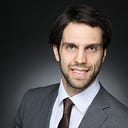A new sport has seen the light of day in the USA: slap fighting. Two men or women face each other and slap each other with the flat of their hands until one of them faints. Meanwhile, the spectators hoot.
People. Wonderful creatures. On the one hand capable of overcoming the most difficult challenges, on the other: limited in a way that any well-traveled sea turtle would only shake its wrinkled head at in perplexity — if it weren’t too busy trying to find a reasonably undamaged part of the ocean.
The Sublime doesn’t generate clicks
It’s a disheartening to see how a species can generate sublime things like, say, Einstein’s theory of relativity, Quantum computers or even AI generated art, while most of the clicks always come from people slapping each other in the face — literally or figuratively.
That can’t actually go well. It doesn’t. Let’s not forget a gruesome fact of life: every past advanced civilization has perished at some point. Triggered either by their own intemperance, foreign greed or both. There is much to suggest that we are heading for a similar point.
Sigmund Freud tried to come to grips with this conundrum by speaking of Eros and Thanatos, that is, by placing alongside the life instinct a death instinct that were both theorized to be inherent to the human condition.
A thesis which led to a fierce dispute with Wilhelm Reich, who resisted the notion of finding our destructive aspects rooted on the biological level. As a psychological aberration, the destructive is treatable — as a physical quality it couldn’t hope to be. All political and social horrors would thus be vindicated, justified, effectively greenlighted.
How destructive is the individual?
Since then, the problem has been tossed around by clever minds without anyone having presented a satisfactory solution. There are good arguments for one way of looking at it as well as for the other, and for every good argument, as is well known, a more surprising counter can be found.
This is how the history of ideas is created. But it is of little use if we as individuals want to relate to an oppressive reality.
So what to do?
In the end, the only thing that helps is probably the oldest and most rarely used remedy of all: think about the meaning of life for yourself, by yourself! To follow the course of time from a radically unique perspective and to relate it to your own experience. Anchor the stream of consciouness in the timeline of experiences by cross-referencing it with important events in the world — your world, specifically.
Without claiming general validity, but with the greatest possible inner precision: What do I see when I look into my reasons and abysses? What do I want to shape, what do I want to participate in, what do I better keep away from? And what is actually necessary to gain an undistorted perspective on myself?
In these cases, the following always applies: In order to find my own answers, I should first know my own questions! #askbetterquestions #datascience
Shaping one’s own lifetime in a self-determined way
Of course, none of this is new. On the contrary. It is part of a tradition that stretches from the beginnings of philosophy to the present day. Epicurus said that “our only occupation should be our healing”. A steep claim, then as now. Everyone can decide for themselves, how they spend their lifetime.
Which brings us once again to slap fighting. Questions of philosophical self-contemplation play a rather minor role there. It should be noted however that they let themselves be beaten up nevertheless voluntarily, although in the hope of handing out the larger slap at the end. No one is forced to participate.
This distinguishes them from certain warmongerers, who have a similar penchant for violence, but not the willingness to turn their own cheek and leave the uninvolved out of the picture. Seen in this light, slap fighting almost seems like an evolutionary leap.
